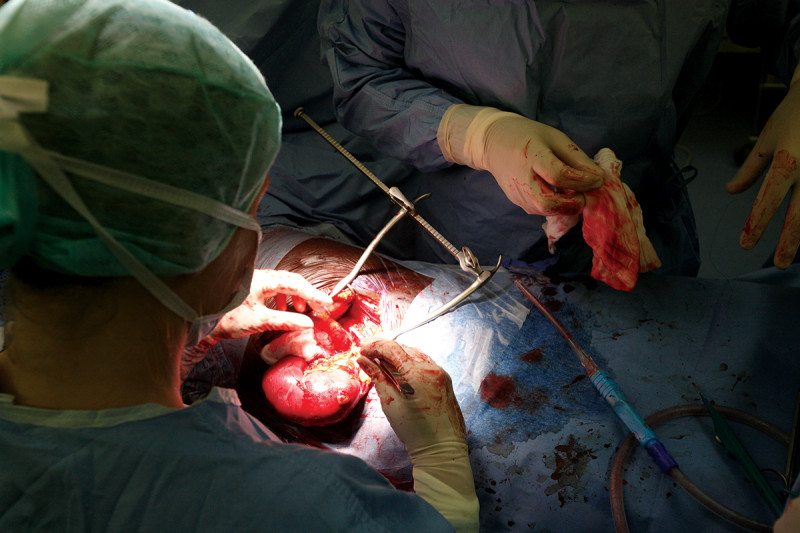“Travel increases your chance of getting and spreading COVID-19. Staying home is the best way to protect yourself and others from COVID-19.”
You can read all the recent updates and recommendations from the Centers for Disease Control and Prevention on traveling during COVID-19, here.
National Campaign to Capture Stories of Hope and Transformation Through Living Donation
“The Transplant Research and Education Center (TREC), in partnership with the Terasaki Institute for Biomedical Innovation and One Lambda, Inc. (onelambda.com), part of Thermo Fisher Scientific and leading producer of in vitro diagnostic products for the HLA transplant community, has launched a six-month mass media campaign for kidney and transplant patients, living donors, and medical providers to raise awareness about the innovative resources available through the Living Donation Storytelling Project.”
Read the full article, here.
NASCAR Driver Races to Shine Light on Organ Donations
“A NASCAR driver is racing to call attention to an issue close to his heart – organ donations.
Joey Gase raced Sunday at Texas Motor Speedway in Fort Worth in the Autotrader Echopark Automotive 500.
Gase’s hood was covered with handprints from the families of organ donors — and those whose lives they saved.”
Watch the interview and read the full story, here.
New Records Set for Organ Donation and Transplantation Despite Pandemic
“INDIANAPOLIS, Oct. 26, 2020 /PRNewswire/ — Despite the COVID-19 pandemic – and with more than two months remaining in 2020 – a record number of Hoosier organ donors have already given the gift of life through Indiana Donor Network, resulting in a record number of lifesaving organs transplanted in a single calendar year.
From Jan. 1 through Oct. 12, 2020, Indiana Donor Network, the state’s federally designated organ recovery organization, made it possible for 667 lifesaving organs to go to patients on the national transplant waiting list. This total breaks Indiana Donor Network’s existing record of 665 lifesaving organs transplanted in all of 2019 and puts the organization on pace to facilitate 28% more organ transplants this year than last year.”
Read the full article by Indiana Donor Network, here.
Philly area women appear on ‘Ellen’ after inspiring bond through kidney donation
“Breanna Sipple and Erin Francis were strangers in the Philadelphia area three years ago when a single Facebook post changed both of their lives.
Francis was 24 years old and had just gotten married when she went into kidney failure. She was uneasy about sharing her story and seeking help, but her husband acted as a champion and made a Facebook post in search of an organ donor for Francis.”
Read the full story and watch the video clip, here.
Honor Organ Donors By Saving Procurement Organizations
“When Cyndi and Frank Grobmeier lost their 18-year-old daughter, Maddie, to an asthma attack, they honored her wish to be an organ donor. Gift of Hope, the organ procurement organization in Chicago that met with the Grobmeier family in the hospital when Maddie died, is still helping them cope with their loss. As Mrs. Grobmeier reminds us in her guest column in the Daily Southtown, donors and their families make every transplant possible.”
Read the full story on UNOS, here.
A Kidney International “Journal of the COVID-19 Year” in Kidney Transplantation
“The global COVID-19 pandemic’s impact on kidney transplant recipients and transplantation programs in the calamitous months of February to June 2020, the Northern Hemisphere Spring to Summer, is represented in articles published in the December issue of Kidney International. Writing about another pandemic in the year of 1665 over 300 years ago the author Daniel Defoe describes the same period of time in London and gives a remarkably familiar description of how a pandemic affects populations, including the unproven treatments, epidemiology of infection and human response to restrictions on freedom of city lockdowns that occurred during that time (1). The risks, outcomes, epidemiology and potential treatments for the kidney transplant population worldwide during the past 12 months have been thankfully studied in detail by multiple authors, and form the subject of papers in KI this month”
Read the full article on kidney INTERNATIONAL, here.
Is ‘2 Hearts’ Movie Based On A True Story?
“Yes, it is! The film is based on the real-life story of Jorge Bacardi — of the Bacardi Rum dynasty — and Christopher Gregory, an organ donor who tragically and suddenly passed away at the age of 19 from a brain aneurysm. Christopher’s organs were donated to five people, one of them being Jorge. The movie is an adaptation of the book All My Tomorrows, written by Chris’ dad.”
Read the full article and watch the trailer, here.
Beta-blockers May Reduce Mortality Rate for Patients with Heart, Kidney Failure
For patients with both heart and kidney failure, beta-blocker use was associated with decreased mortality rates within 1 year after dialysis initiation.
According to Hui Zhou, PhD, of the department of research and evaluation at Kaiser Permanente Southern California, and colleagues, beta-blocker therapy is generally thought to be beneficial to patients with chronic kidney disease. However, they contended that less is known about its impact on patients once they progress to end-stage kidney disease and must transition to dialysis.
Read the full article, here.
COVID-19 Infection in Kidney Transplant Recipients at the Epicenter of Pandemics
“Following the first case of coronavirus infectious disease 2019 (COVID-19) in the USA in January 2020, New York quickly became the epicenter of the pandemic in March and April 2020. Initial results from 3 centers in New York reported a high mortality rate of 20%-39% in hospitalized patients 1, 2, 3. Kidney transplant recipients are expected to be at an increased risk of complications from COVID-19 not only due to their chronic immunosuppression but also frequently associated comorbidities including older age, hypertension, diabetes mellitus, chronic kidney disease and cardiovascular disease.”
Read the full study on kidney INTERNATIONAL, here.








